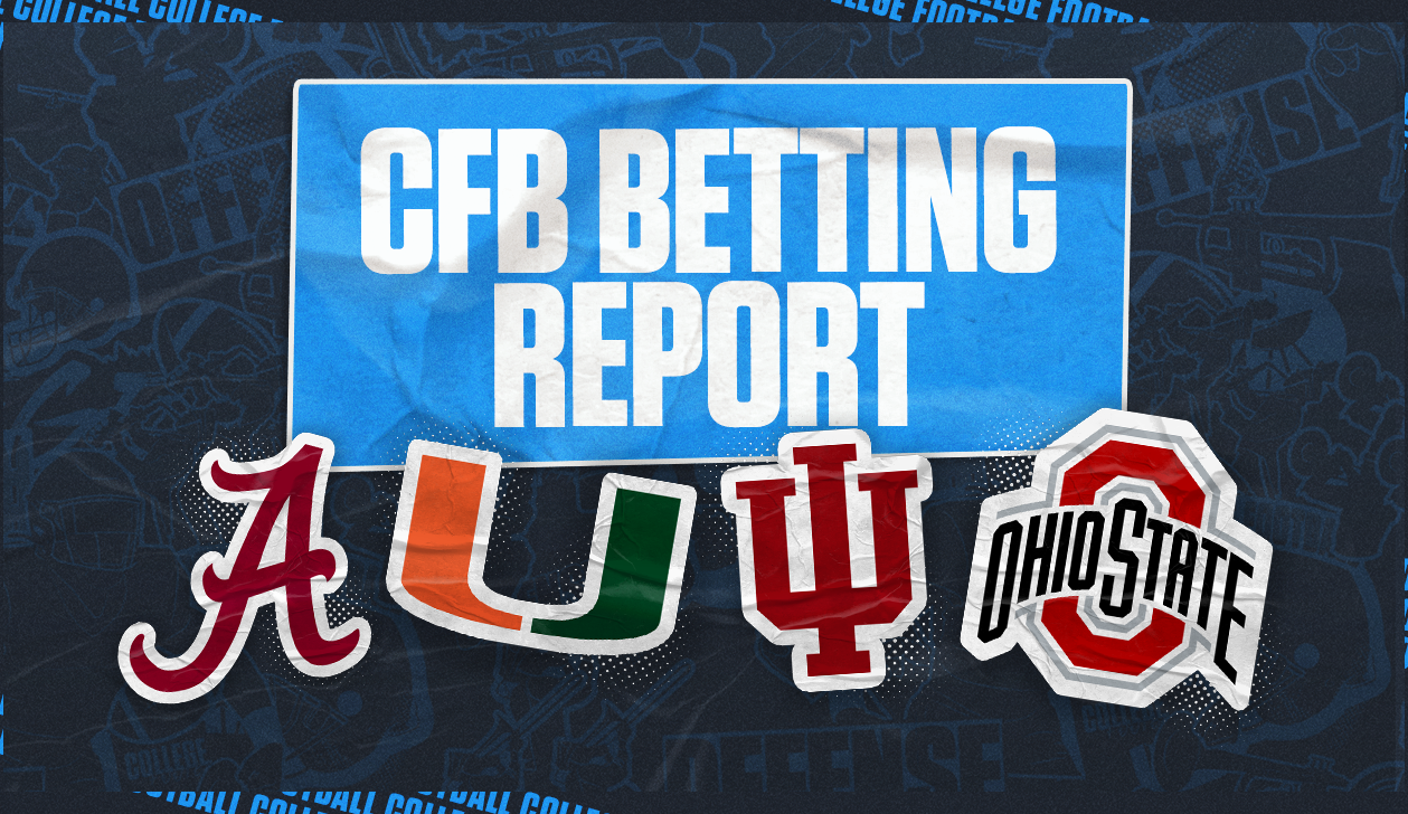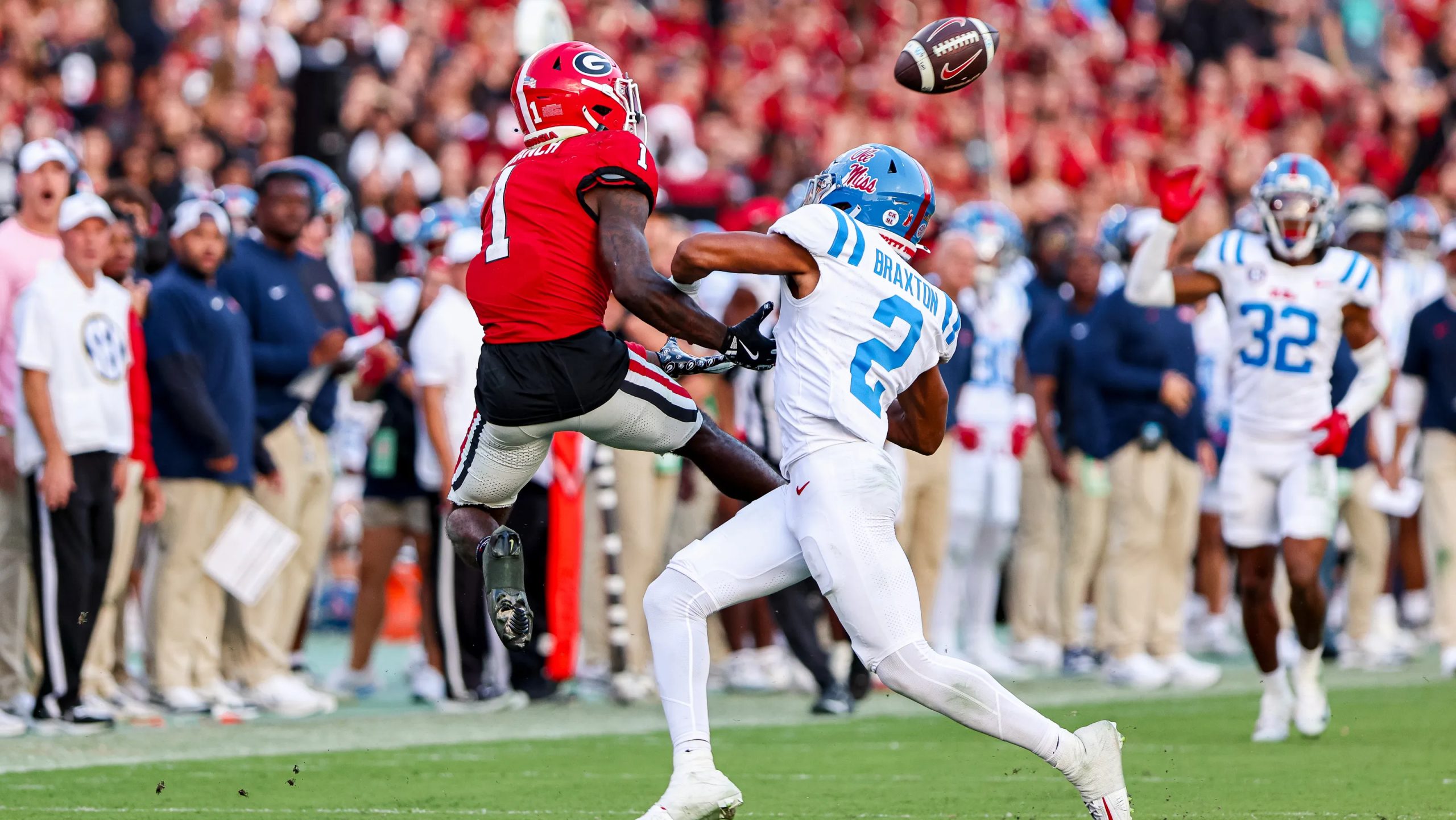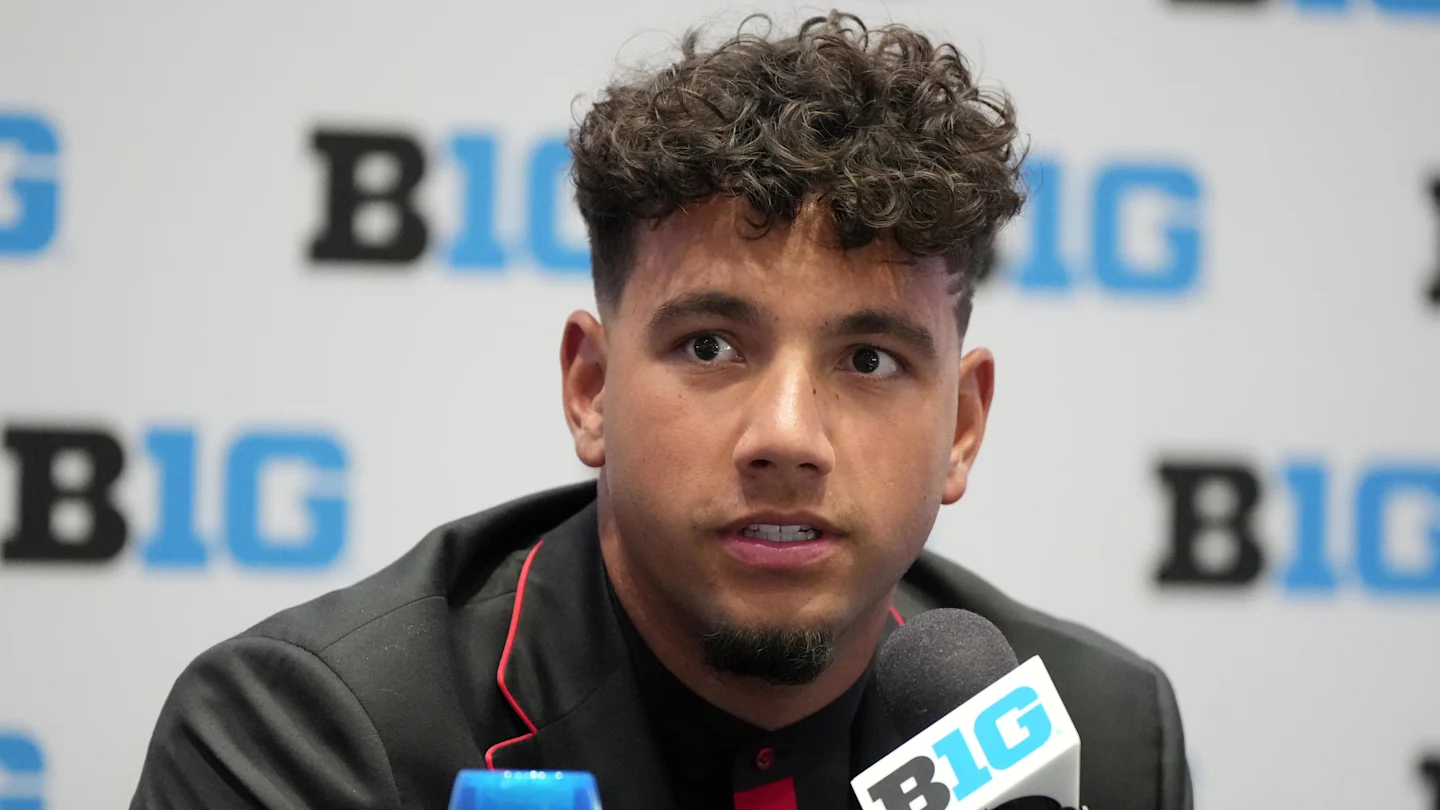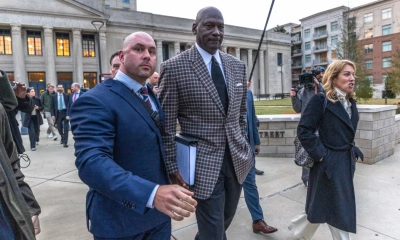NIL
Nick Saban downplays need for college sports commission, urges unified NIL rules

During an appearance on the SEC Network’s “Paul Finebaum Show” yesterday, former college football coach Nick Saban said that he “doesn’t believe there needs to be a commission to resolve the issues of college athletics,” which President Donald Trump reportedly “wants him to co-chair,” according to John Leuzzi of USA TODAY. Saban noted, “I don’t know a lot about the commission. Secondly, I’m not sure we really need a commission … the key to the drill is getting people together so that we can move it forward.” Saban: “I’m not opposed to players making money. I don’t want anybody to think that. I just think the way it’s going right now, it’s not sustainable and probably not in the best interest of the student athletes across the board or the game itself. So I think we need to protect the brand and the competitive advantages and disadvantages that are being created right now. And I think we can fix all that” (USA TODAY, 5/14). THE ATHLETIC’s Khan Jr., Vannini and Williams write while Saban’s comments “raised doubts,” sources said plans for the commission are “still moving forward.” The commission “is not official and still in the preliminary planning stages” (THE ATHLETIC, 5/15).
NIL
College Football Playoff team loses running back to transfer portal

A running back with proven production is set to enter the college football transfer portal with just one year of NCAA eligibility remaining in his career.
James Madison running back Ayo Adeyi is preparing to enter the transfer portal in search of what will be a third school to play for in 2026, according to ESPN.
What he’s done on the field
Adeyi was limited to just 120 rushing yards on 24 carries for the Dukes as they made their first College Football Playoff appearance this past season, but the tailback has a history of solid output when he was initially at North Texas.
In total, Adeyi has 2,480 career rushing yards and 17 touchdowns while averaging 6.5 yards per carry over the last five collegiate seasons, mostly with the Mean Green.
He ran for 6 touchdowns on 496 yards in his initial season there before improving his per yard average to 7.2 yards the following season with 4 touchdowns and 807 total yards.
Adeyi had his best season to date in 2023, when he carried 143 times for 1,017 yards and scored 6 touchdowns while averaging 7.1 yards per attempt.
How the college football transfer portal works
College football’s transfer portal officially opens on Jan. 2, but that hasn’t stopped a flurry of players from entering their names for consideration at a new school right now.
The new 15-day transfer portal window from Jan. 2-16 and the elimination of the spring transfer period has condensed the timeline for players and programs to make their moves.
The NCAA Transfer Portal is a private database that includes the names of student-athletes in every sport at the Division I, II, and III levels. The full list of names is not available to the public.
A player can enter their name into the transfer portal through their school’s compliance office.
Once a player gives written notification of their intent to transfer, the office puts the player’s name into the database, and they officially become a transfer.
The compliance office has 48 hours to comply with the player’s request and NCAA rules forbid anyone from refusing that request.
The database includes the player’s name, contact information, info on whether the player was on scholarship, and if he is a graduate student.
Once a player’s name appears in the transfer portal database, other schools are free to contact the player, who can change his mind at any point in the process and withdraw from the transfer portal.
Notably, once a player enters the portal, his school no longer has to honor the athletic scholarship it gave him.
And if that player decides to leave the portal and return to his original school, the school doesn’t have to give him another scholarship.
(ESPN)
More college football from SI: Top 25 Rankings | Schedule | Teams
Follow College Football HQ: Bookmark | Rankings | Picks
NIL
CFB Betting Report: Action on Standalone Playoff Games Reaching NFL Heights

NFL betting usually rules the roost on the American sports wagering landscape.
But College Football Playoff quarterfinal odds are giving the mighty shield a run for its money at the moment — particularly in the Miami vs. Ohio State Cotton Bowl matchup, which kicks off the quarterfinals on Dec. 31, and the Alabama vs. Indiana Rose Bowl showdown on Jan. 1.
“These standalone College Football Playoff games really rival the NFL games,” Caesars Sports vice president of trading Craig Mucklow said.
Mucklow serves up his insights on College Football Playoff quarterfinal odds for all four matchups.
This page may contain affiliate links to legal sports betting partners. If you sign up or place a wager, FOX Sports may be compensated. Read more about Sports Betting on FOX Sports.
Bettors Backing Buckeyes
Ohio State is 12-1 straight up (SU), though that lone loss came in its last outing. The Buckeyes were 3.5-point favorites vs. Indiana in the Big Ten Championship Game and fell short 13-10.
Still, with a 10-2-1 mark against the spread (ATS), Ohio State has been one of the best bets all season in college football. Only Texas Tech (11-2 ATS) is better at covering the number.
So it shouldn’t come as a surprise that the public betting masses are all over No. 2 Ohio State vs. No. 10 Miami (11-2 SU/8-5 ATS) in the Cotton Bowl, for a 7:30 p.m. ET New Year’s Eve kickoff.
“Ohio State is a bigger loser for us on the spread than any of the NFL Week 17 games. And there’s still [five days] of betting to come,” Mucklow said.
After Miami’s 10-3 first-round win at No. 7 Texas A&M, Caesars Sports opened the Buckeyes as 7.5-point favorites. That number sprinted to Buckeyes -10, with early bettors eager to pile on Ohio State.
The Hurricanes actually saw sharp action at +10, so Caesars adjusted Monday to Ohio State -9.5.
Backing Off ‘Bama
No. 9 Alabama (11-3 SU/8-5-1 ATS) has the SEC pedigree, which is usually attractive to the betting masses. But No. 1 Indiana (13-0 SU/8-5 ATS) has been an offensive juggernaut much of the season, and bettors like to back a good offense.
And even though the Hoosiers didn’t put up points in their last outing, they did beat defending national champion Ohio State in the Big Ten title game. That carries some weight, as well, for a 4 p.m. ET Rose Bowl clash on New Year’s Day.
Indiana opened as a 6-point favorite and moved out to -7 in short order. Mucklow said sharp action on Alabama +7 led Caesars to lower Indiana to -6.5. But a continuing flood of Indiana action from the masses moved the Hoosiers up to -7 again.
“Bettors are all over Indiana big time. That’s bigger than our Ohio State decision,” Mucklow said. “I hate to say it, but we’re Alabama fans by a good distance.”
That said, Mucklow noted Caesars has one angle working in its favor.
“Indiana has not really been in this position before. Alabama has been there, done that,” he said.
Short Spread
Oddsmakers believe No. 5 Oregon vs. No. 4 Texas Tech is the most competitive matchup in CFP quarterfinal odds. The Ducks opened as 1.5-point favorites and are up to -2 vs. the Red Raiders, for a noon ET New Year’s Day start in the Orange Bowl.
Oregon (12-1 SU/9-4 ATS) already has a CFP game under its belt, coasting past No. 12 James Madison 51-34. But the Ducks fell short of covering as huge 20.5-point home favorites.
As noted above, Texas Tech (12-1 SU/11-2 ATS) is the best spread-covering team in the nation this season. The Red Raiders have been resting since a 34-7 rout of BYU as 12.5-point favorites in the Big 12 Championship Game on Dec. 6.
Bettors are leaning toward the Ducks, as of Friday afternoon.
“Oregon is a small loser for us, nothing drastic. There’s not much of a difference between these two teams,” Mucklow said. “I think this game will see two-way action. It’s only a 2-point spread.”
Sweet Rematch
One matchup in College Football Playoff quarterfinal odds is actually a rematch from the regular season. In Week 8, Ole Miss and Georgia played a thriller in Athens, Ga.
Ole Miss — then under Lane Kiffin, who has since left for LSU — led 35-26 late in the third quarter. But Georgia did the rest of the scoring in a 43-35 victory, barely covering as a 7-point home favorite.
Now, No. 3 Georgia (12-1 SU/6-7 ATS) and No. 6 Ole Miss (12-1 SU/8-5 ATS) meet on a neutral field at the Sugar Bowl. The spread is similar to the first meeting, with the Bulldogs opening -6 and now up to -6.5 for this 8 p.m. ET kickoff on New Year’s Day.
“All the money is for Georgia, which doesn’t surprise me,” Mucklow said. “You’ve given Kirby Smart three weeks to prepare for this game.”
Money Talks
Mucklow also ran through ranking the four CFP quarterfinals based on the amount of money each game is seeing so far.
“Alabama-Indiana is No. 1 by a distance. Then it’s Miami-Ohio State,” Mucklow said. “Then there’s a pretty significant gap to Ole Miss-Georgia, and another big gap to Oregon-Texas Tech. That’s the least popular of the four, by a distance.”
Patrick Everson is a sports betting analyst for FOX Sports and senior reporter for VegasInsider.com. He is a distinguished journalist in the national sports betting space. He’s based in Las Vegas, where he enjoys golfing in 110-degree heat. Follow him on X: @PatrickE_Vegas.
Want great stories delivered right to your inbox? Create or log in to your FOX Sports account, and follow leagues, teams and players to receive a personalized newsletter daily!
NIL
Previewing the quarterfinal round of the College Football Playoff

Dec. 27, 2025, 3:06 p.m. CT
The College Football Playoff has reached the quarterfinal round, after a mixed bag of first round matchups have landed us with eight teams remaining that can still win the national title. With less than a week left in the non-CFP bowl season, and the playoff ramping up, it’s time to take a look at all four second round matchups.
New Year’s Eve and New Year’s Day will be the showcase for each of the quarterfinal games, and four iconic bowl games will be in the spotlight, determining who makes it to the semifinal round the following week. While our primary focus will be on the roster churn for the Oklahoma Sooners in the transfer portal and the players heading off to the pros, there’s no denying that there should be some great football to watch as the calendar turns to 2026.
Here are previews for each CFP quarterfinal game, as we’ll know college football’s final four teams by the end of Thursday night.
Cotton Bowl: Miami vs. Ohio State, Wednesday at 6:30 p.m. CT

Miami and Ohio State will kick off the quarterfinals in the Cotton Bowl in Arlington, Texas on Wednesday night, with the winner heading to the Fiesta Bowl to take on the Ole Miss-Georgia winner. The Hurricanes went on the road in the first round and defeated Texas A&M, notching the program’s first-ever CFP win. Mario Cristobal campaigned hard for his team to make the playoff, and now they have a chance to pull off another upset in the second round.
Ryan Day and the Buckeyes last played in a loss to Indiana in the Big Ten title game, but they’re as dangerous as anyone in the field, and are one of the favorites to win it all again. With just one loss all season, they’re a talented and deep team that knows better than anyone how to navigate the 12-team CFP. Two high-powered offenses, led by productive quarterbacks in Carson Beck and Julian Sayin, should make this one a high-scoring affair.
Orange Bowl: Oregon vs. Texas Tech, Thursday at 11:00 a.m. CT

The Ducks and the Red Raiders will face off in the Orange Bowl in Miami Gardens, Florida on Thursday. The winner between two programs that have become a force in the NIL era of college football will face the Alabama-Indiana winner in the Peach Bowl. Oregon handled James Madison in the first round at home, but they weren’t satisfied with just getting that one win. Dan Lanning, quarterback Dante Moore, and the Ducks have as much firepower as any team in the country, and their talent may very well carry them far in this field.
Texas Tech is a program that suddenly has the talent to compete with the big boys in college football, and they were clearly the Big 12’s best team in 2025. Joey McGuire’s team earned a bye in their first-ever CFP appearance, and it could be how quarterback Behren Morton and the Tech offense handle one of the best defenses in the country on the other side. The start of a triple-header of CFP quarterfinals on Thursday has plenty of intrigue baked into it.
Rose Bowl: Alabama vs. Indiana, Thursday at 3:00 p.m. CT

The Rose Bowl features a great matchup between Alabama and Indiana on Thursday in Pasadena, California. Whoever can find a way to win this game will head to the Peach Bowl, and will play the Oregon-Texas Tech winner. The Crimson Tide won on the road in the first round, defeating Oklahoma. Kalen DeBoer’s squad looked like the ‘Bama team from earlier this season for the final 2 and 1/2 quarters in that game, and quarterback Ty Simpson and the Tide offense played excellent football after falling behind.
On the other side, Curt Cignetti’s Hoosiers are the No. 1 team in the country, the only unbeaten FBS team to this point in 2025, and they boast the Heisman Trophy winner in quarterback Fernando Mendoza. Despite all of that, it’s Alabama that boasts more overall team talent, and their stingy defense should be a great matchup against an explosive and dynamic offense from Indiana. One of the great settings in all of college football gets a doozy again in 2025.
Sugar Bowl: Ole Miss vs. Georgia, Thursday at 7:00 p.m. CT

The Sugar Bowl gives us a rematch from one of the best games of the regular season between Ole Miss and Georgia. Whoever wins this clash in New Orleans, Louisiana on Thursday night will play the Miami-Ohio State winner in the Fiesta Bowl. The Rebels are still in the aftermath of the Lane Kiffin departure, but Pete Golding’s team dominated Tulane in the first round at home. Led by quarterback Trinidad Chambliss and a wide-open offense, the Rebs are playing with a lot of confidence right now.
Their only loss all season came that the hands of Kirby Smart and the Bulldogs. That game was an instant classic in Athens, with the ‘Dawgs coming back to win, despite trailing in the fourth quarter. Quarterback Gunner Stockton and the offense have gotten better and better as the season has gone on, and this team appears to be in a better position than they were in 2024. Can Ole Miss’ high-octane offense avenge the October loss, or will Georgia’s stifling defense stand tall and advance to the semifinals?

Contact/Follow us @SoonersWire on X, and like our page on Facebook to follow ongoing coverage of Oklahoma news, notes, and opinions. You can also follow Aaron on X@Aaron_Gelvin.
NIL
‘Dumbest Thing in the World,’ CFB Agent Reacts to Transfer Portal Changes amid NIL

The new changes to the transfer portal window were put in place with the intention of making things easier for both coaches and athletes, but some haven’t viewed the changes as a positive.
Per The Athletic’s Stewart Mandel, one agent said, “nothing has changed, except kids aren’t able to take visits.” The agent added that “it’s the dumbest thing in the world.”
Previously, there were two transfer portal windows: one being a 20-day window in December and the other being a 10-day window in April. As of October, there is now just one transfer portal window, which is Jan. 2-16 this year.
Athletes playing on a team that undergoes a coaching change are given a 15-day transfer portal window that begins five days after a new coach is hired. Players who are participating in the College Football Playoff but choose to transfer during the January window are allowed to stay with their teams through the end of the season.
On the surface, the change would seemingly be a net positive for all parties, but apparently it still needs some tweaking.
NIL
4,000-yard QB heavily linked to major college football program in transfer portal

A shuffling of quarterbacks is coming to college football in 2026.
In the Power Four ranks, quarterbacks such as Rocco Becht, Josh Hoover, Dylan Raiola and Brendan Sorsby are looking for new schools to play for next season.
While the Power Four quarterbacks are dominating the spotlight, there are a number of Group of Five starters looking to increase their exposure at Power Four programs in 2026.
One quarterback who will depart from a Group of Five school when the transfer portal opens is UNLV starter Anthony Colandrea. He will have one season of eligibility remaining at his third school.
One school of interest that has emerged for Colandrea since he decided to leave UNLV is Florida State.
Pete Nakos of On3 reported that Florida State is interested in Colandrea as its starter in 2026.
Should Colandrea transfer to Florida State for the 2026 football season, he would join a growing number of quarterbacks who have transferred to the Seminoles in the last five seasons.
James Blackman was the last quarterback recruited out of high school to start at the beginning of a season for Florida State all the way back in 2020. Since Blackman, Mike Norvell has added Jordan Travis (Louisville), DJ Uiagelelei (Clemson and Oregon State), and Tommy Castellanos (Boston College) from the transfer portal to the Seminoles.

The 6-foot, 205-pounder began his college football journey with Tony Elliott at Virginia in 2023. Tony Muskett started that season at quarterback, but a combination of injuries and inconsistency gave Colandrea the opportunity to play in seven games. He threw for 1,958 yards, 13 touchdowns and nine interceptions while rushing for 225 yards.
Colandrea played in 11 of the Cavaliers’ 12 games in the 2024 season. He passed for 2,125 yards, 13 touchdowns and 11 interceptions while rushing for 277 yards and two touchdowns. He transferred to UNLV the following offseason.
The Rebels gave Colandrea the starting role over Michigan transfer Alex Orji after the first game. Colandrea passed for 3,459 yards, 23 touchdowns and nine interceptions while accumulating 649 yards and 10 touchdowns on the ground. He guided UNLV to a 10-win season, a Mountain West Championship appearance and an appearance in the Scooter’s Coffee Frisco Bowl.
Colandrea received Mountain West Player of the Year and All-Mountain West First Team distinction for his heroics in 2025.
NIL
$2.5 million QB dealt reality check after decision to enter transfer portal

Fox Sports college football analyst RJ Young delivered a harsh assessment of a high-profile quarterback who holds a $2.5 million NIL valuation from On3. This signal-caller recently decided to enter the transfer portal, a move that sparked significant conversation regarding loyalty and team building in the modern era. Young suggests the decision transforms the player from a program cornerstone into a temporary asset.
The analyst noted that the athlete’s next destination will likely view him as a transient piece rather than a long-term solution. This contrasts sharply with the fanbase he is leaving behind because they believed he would play a central role in restoring their program to national title contention.
The quarterback had originally arrived with immense expectations and family ties that carried unique prestige at his former school.
Young argued that the player had everything he requested at his previous stop, including a relative on the coaching staff. By exiting the program now, the standout leaves behind an unfinished job regarding a College Football Playoff invitation despite helping the team reach its first bowl game in eight years.
Analyst details financial, competitive implications of transfer decision
The subject of this scrutiny is Nebraska Cornhuskers quarterback Dylan Raiola. He famously flipped his commitment from the Georgia Bulldogs and the Ohio State Buckeyes before landing in Lincoln. Young’s critique centered on the shift in how Raiola will be perceived moving forward.
“Wherever he lands next will greet him as a rental, unlike Huskers fans who believed he would play a large role in their return to national title contention,” Young said.
The analyst emphasized the unique situation Raiola abandoned.

“Raiola had everything he asked for at Nebraska,” Young said. “As a legacy with an uncle coaching the offensive line, his name carries a prestige in Lincoln that it does not anywhere else in the country.”
Fox Sports college football analyst Laken Litman also weighed in on the situation. She noted the massive expectations placed on the young passer when he arrived on campus.
“The 6-foot-3, 230-pound quarterback was supposed to be the star that would lead Nebraska’s resurgence alongside head coach Matt Rhule,” Litman said.
Raiola started as a freshman and threw for 2,819 yards in 2024. However, his second season did not go exactly as planned after he broke his leg against the USC Trojans. Litman pointed out that external factors likely influenced the departure.
“However, this year didn’t go as planned,” Litman said. “He broke his leg in a loss to USC that sidelined him for the rest of the season, and then couple that with Nebraska firing its offensive line coach, who is his uncle, and his brother de-committing from the 2026 recruiting class, and the decision starts making sense.”

Young added that the initial excitement blinded many to the quarterback’s history of movement.
“The admiration Cornhuskers fans laid on Raiola allowed many Nebraska fans to forget he transferred programs twice in high school and flipped his commitment three times as a prep player,” Young said. “Because his decision to play for the Huskers felt like the one that would stick.”
The Cornhuskers will face the Utah Utes in the SRS Distribution Las Vegas Bowl on Dec. 31 at 10:30 p.m. ET on ESPN.
Read more on College Football HQ
-

 Motorsports2 weeks ago
Motorsports2 weeks agoSoundGear Named Entitlement Sponsor of Spears CARS Tour Southwest Opener
-

 Motorsports3 weeks ago
Motorsports3 weeks agoDonny Schatz finds new home for 2026, inks full-time deal with CJB Motorsports – InForum
-

 Rec Sports3 weeks ago
Rec Sports3 weeks agoDavid Blitzer, Harris Blitzer Sports & Entertainment
-

 Motorsports3 weeks ago
Motorsports3 weeks agoRick Ware Racing switching to Chevrolet for 2026
-

 NIL2 weeks ago
NIL2 weeks agoDeSantis Talks College Football, Calls for Reforms to NIL and Transfer Portal · The Floridian
-

 Technology3 weeks ago
Technology3 weeks agoWearable Gaming Accessories Market Growth Outlook
-

 Sports2 weeks ago
Sports2 weeks ago#11 Volleyball Practices, Then Meets Media Prior to #2 Kentucky Match
-

 Motorsports2 weeks ago
Motorsports2 weeks agoSunoco to sponsor No. 8 Ganassi Honda IndyCar in multi-year deal
-

 Motorsports3 weeks ago
Motorsports3 weeks agoNASCAR owes $364.7M to teams in antitrust case
-

 Motorsports2 weeks ago
Motorsports2 weeks agoNascar legal saga ends as 23XI, Front Row secure settlement

































